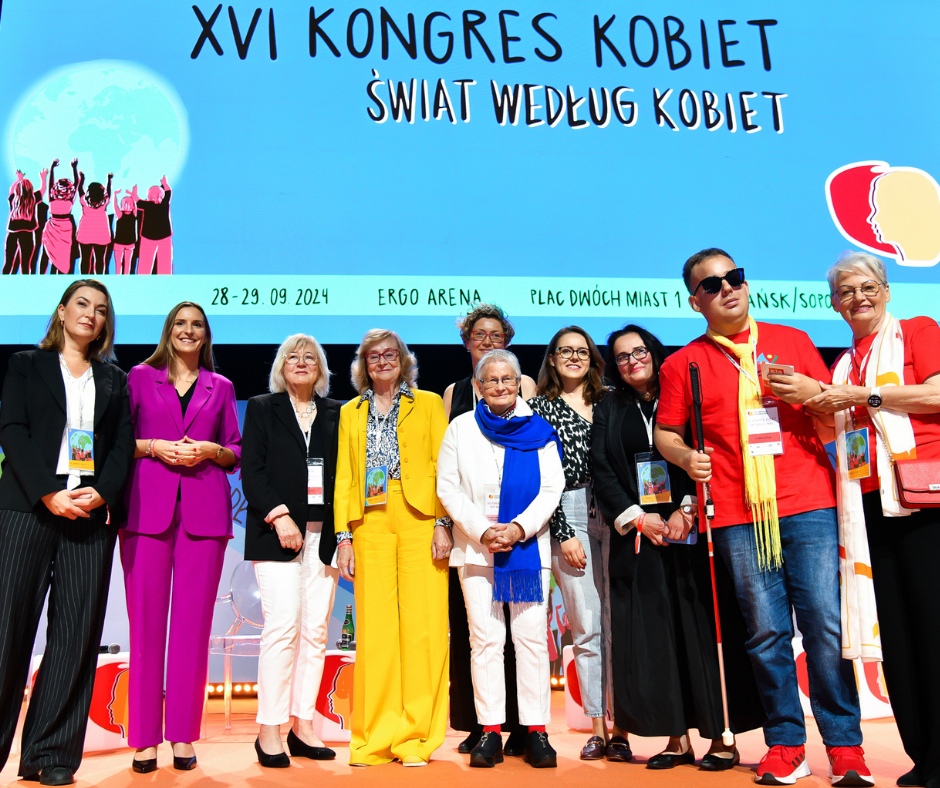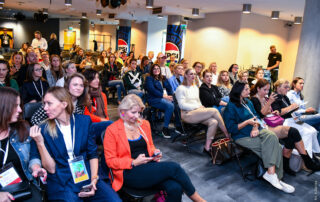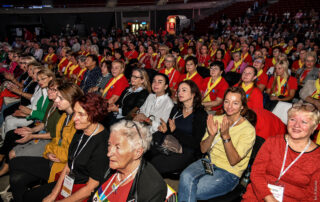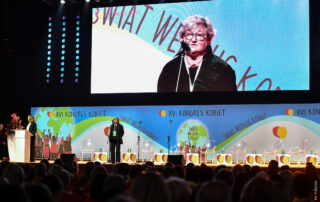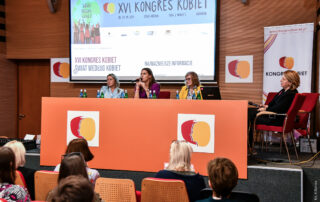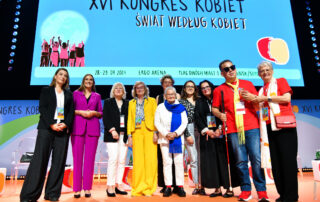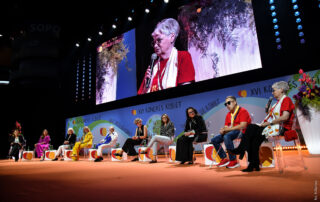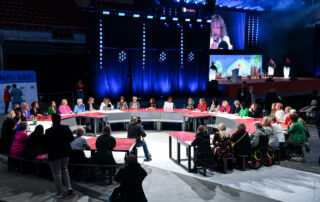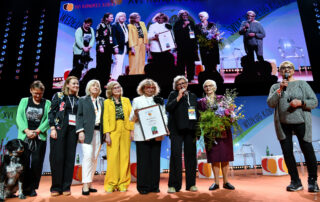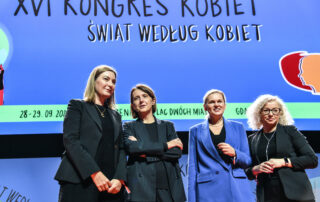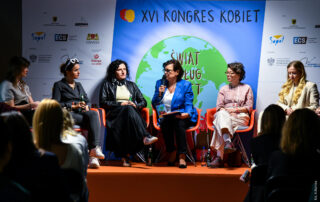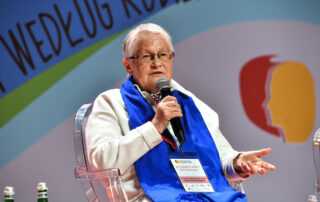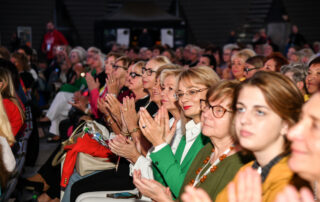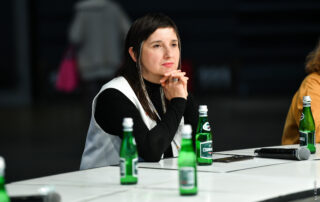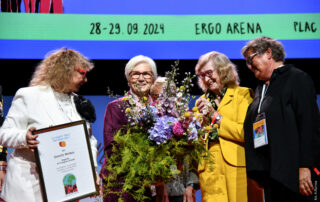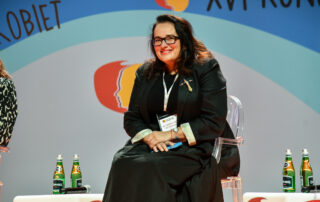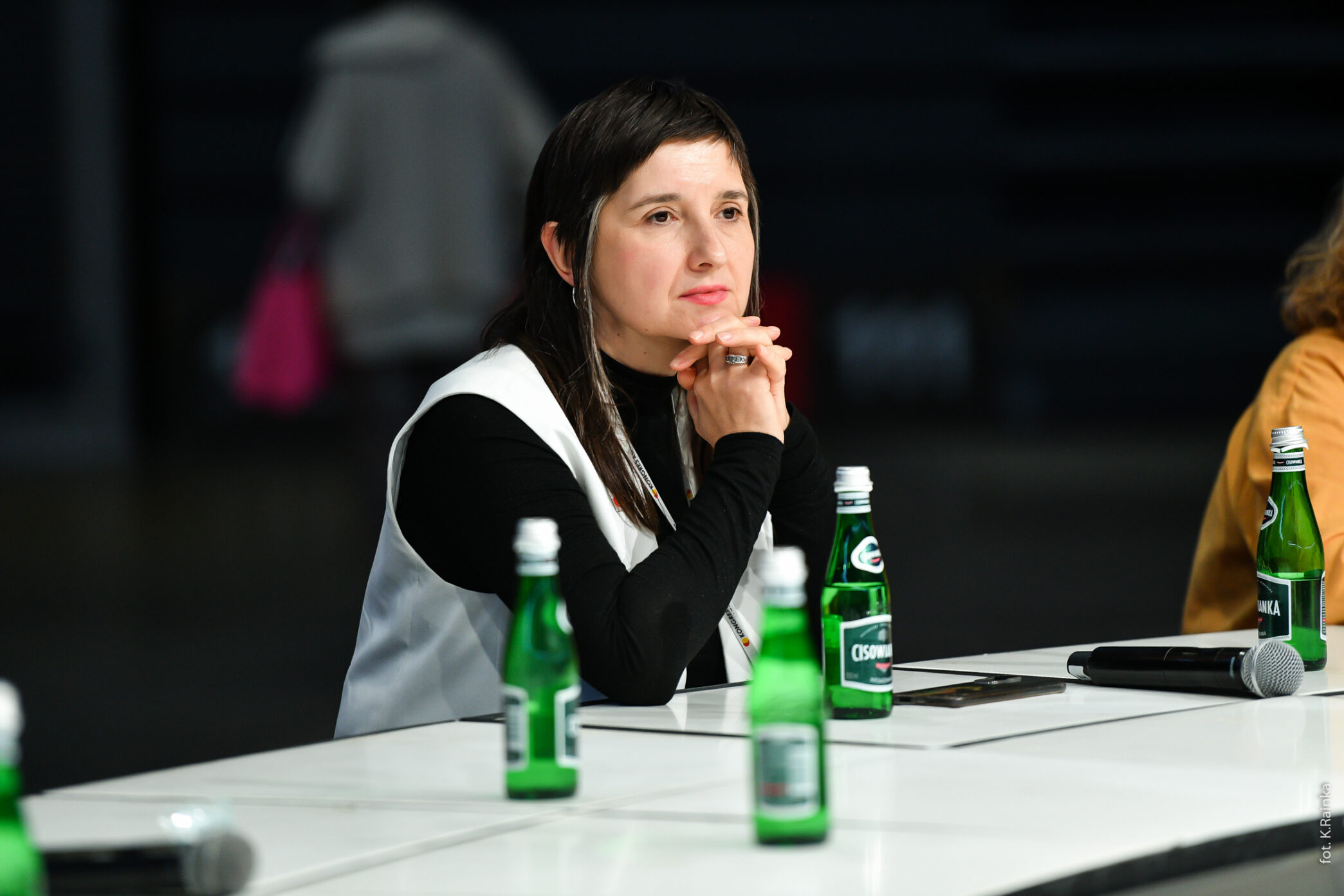Nearly 3,000 participants took part in the 16th edition of the Congress of Women on 28-29 September 2024 in the Tricity’s Ergo Arena. Taking place in a different Polish city each year, the initiative is a platform for discussing issues relevant to women. The organisation of the Congress involved, among others, staff from the University of Gdansk, including the UG Centre for Sustainable Development.
Fot. K. Rainka
This year’s edition was dedicated to the role of women in building the future. In line with the event’s motto ‘A world according to women’, guests and invitees debated women’s rights in Poland, the role of women in building a modern egalitarian society, a sustainable economy and strong, gender-sensitive local governments. The broad spectrum of topics covered issues ranging from the rule of law and security, through education, health and sport, to challenges for the Polish Presidency of the European Union. The invited panellists included women representing various social groups: scientists, experts, politicians, doctors, teachers, entrepreneurs, lawyers, schoolgirls and mothers.
The participants were welcomed by the Founding Mothers of the Congress of Women, Henryka Bochniarz and Magdalena Środa, the Mayor of Gdańsk Aleksandra Dulkiewicz, the Mayor of Sopot Magdalena Czarzyńska-Jachim, the Mayor of Gdynia Aleksandra Kosiorek, the Governor of Pomerania Beata Rutkiewicz and the Marshal of the Pomeranian Voivodeship Mieczysław Struk.
The congress was attended by a large representation from the University of Gdansk consisting of both academic and administrative staff. In the panel ‘Partnering with men: paternity leave and beyond’, chaired by Karolina Andrian, one of the panellists was Natasza Kosakowska-Berezecka, PhD, DSc, Professor UG, member of the steering committee of the project ‘RE-WIRING – Realising Girls’ and Women’s Inclusion, Representation and Empowerment‘ and the project “MINDtheGEPs – Modifying Institution by Developing Gender Equality Plans”.
In turn, Prof. Ewa Łojkowska, Advocate for Equal Treatment and Anti-Harassment at the University of Gdańsk, took part in the panel ‘Women Leaders in Science and New Technologies’, chaired by Natalia Waloch.
During the panel, Professor Ewa Łojkowska spoke about how the Gender Equality Plan, implemented at UG since 2021, has affected various aspects of university life. She pointed out that it has had a significant impact on changes in university leadership.
“In 2021, the University of Gdansk had one female vice-rector – in 2024 we already have three. In the three universities that are part of the Fahrenheit University Union, there were a total of two vice-rectors in 2020, and in 2024 we already have eight,” the researcher said.
Further achievements listed by the professor include the creation of the website ‘Women in Science. Elisabeth Koopman-Heweliusz website’, which describes the achievements of female scientists employed at UG since the university’s inception, and the initiation of the “I include gender in research” award for master’s and doctoral theses incorporating the gender perspective of the research object (Gendered innovation in science). She also mentioned the gradual introduction of feminatives into university legal acts, contracts, the UG website and the visual identity of our university.
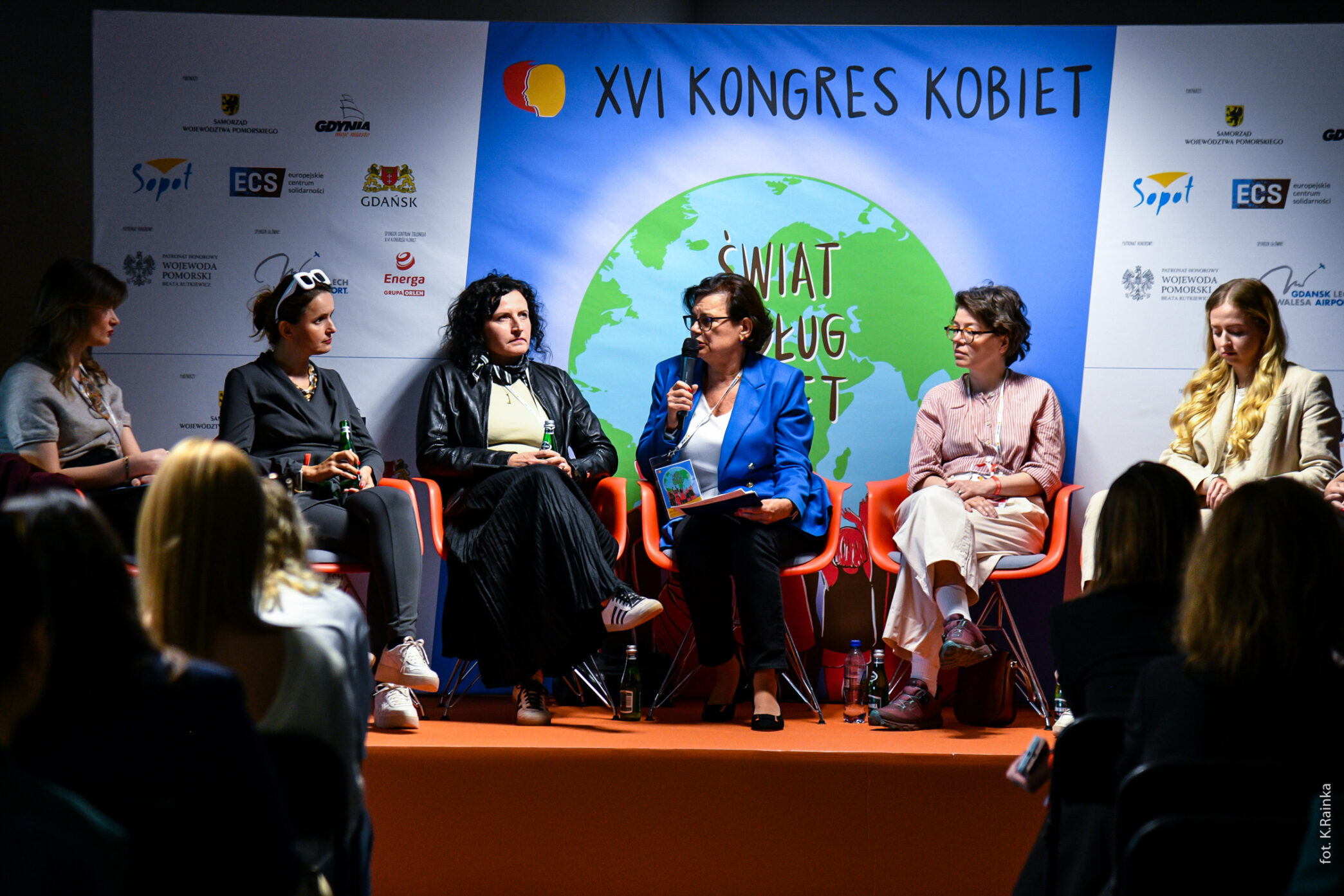
Prof. Ewa Łojkowska during the panel on ‘Women leaders in science and new technologies’. Photo: K. Rainka
In the panel ‘Challenges for the Polish Presidency of the European Union’, moderated by Aleksandra Karasińska, one of the panellists was Sylwia Mrozowska, PhD, DSc, Prof. UG, who took up the post of Director of the Centre for Sustainable Development at the University of Gdańsk on 1 October 2024. The political scientist and manager of projects and research and development work emphasised that women’s issues have been given their rightful place in EU policy and especially in the criteria for selecting projects for funding in the current financial perspective of the European Union.
‘This means moving from soft measures to concrete measures,” emphasises Sylwia Mrozowska. “From 5 January 2023, the Equality Guidelines describe a uniform way of implementing two horizontal principles: the principle of equal opportunities and non-discrimination, including accessibility for people with disabilities, and the principle of equality between women and men. This is a major step forward in implementing the objectives advocated by the Women’s Congress. In order to obtain funding, ways of ensuring equal opportunities must be identified. I am convinced, after our panel discussion with the participation of the Minister and the eminent expert Professor Magdalena Fuszara, that the Polish Presidency of the Council of the European Union, which coincides with the start of the term of office of many European institutions, is an extraordinary moment to strengthen these activities.“

Sylwia Mrozowska, PhD, DSc, Professor UG during the panel ‘Challenges for the Polish Presidency of the European Union’. Photo: K. Rainka
One of the discussions concluding the first day of the congress was the panel ‘What about this Green Deal?’. The debate, chaired by Ewa Sufin-Jacquemart, featured, among others, Barbara Kijewska, PhD, Professor UG from the Centre for Sustainable Development, who has been involved for years in advocating for women’s rights and the Women’s Congress.
“I have been involved with the Women’s Congress for many years. On the one hand, as a researcher, I follow its activities as an NGO influencing policy-making and decision-makers, and on the other, as an organisational plenipotentiary of the Women’s Congress in the Tri-City,” mentions Barbara Kijewska. “However, every year I am amazed at how much the Congress needs to talk, listen and share its experience. It is unbelievable that with such a packed programme over two days, the rooms at the last panels are packed with participants all the time!“
It is also worth mentioning that throughout the Congress, guests had the opportunity to admire two exhibitions about women, prepared in cooperation with UG researchers. The first, which was exhibited in the Plenary Hall, was an open-air exhibition prepared by the Gdansk University Museum and the Gdansk Science Museum: ‘Pioneers, Researchers, Leaders. Women of Gdańsk Science’. The second, entitled ‘Scientists’ and presenting 12 young contemporary female scientists from various Gdańsk universities and research institutions, was displayed in Park Kobiet. The ‘Uczone’ exhibition was initiated by the Hevelianum team, and the selection of the heroines of the exhibition was made by a programme board comprising professors from the University of Gdansk, Gdansk University of Technology, Gdansk Medical University and Gdansk Academy of Fine Arts, as well as representatives of the City of Gdansk and the L’Oréal-UNESCO programme for Women and Science. Scientists from the Fahrenheit University Women’s Club had an important contribution to the exhibition, and the Chair of the Programme Council was Prof. Ewa Łojkowska, Ph.D., President of the Club.


